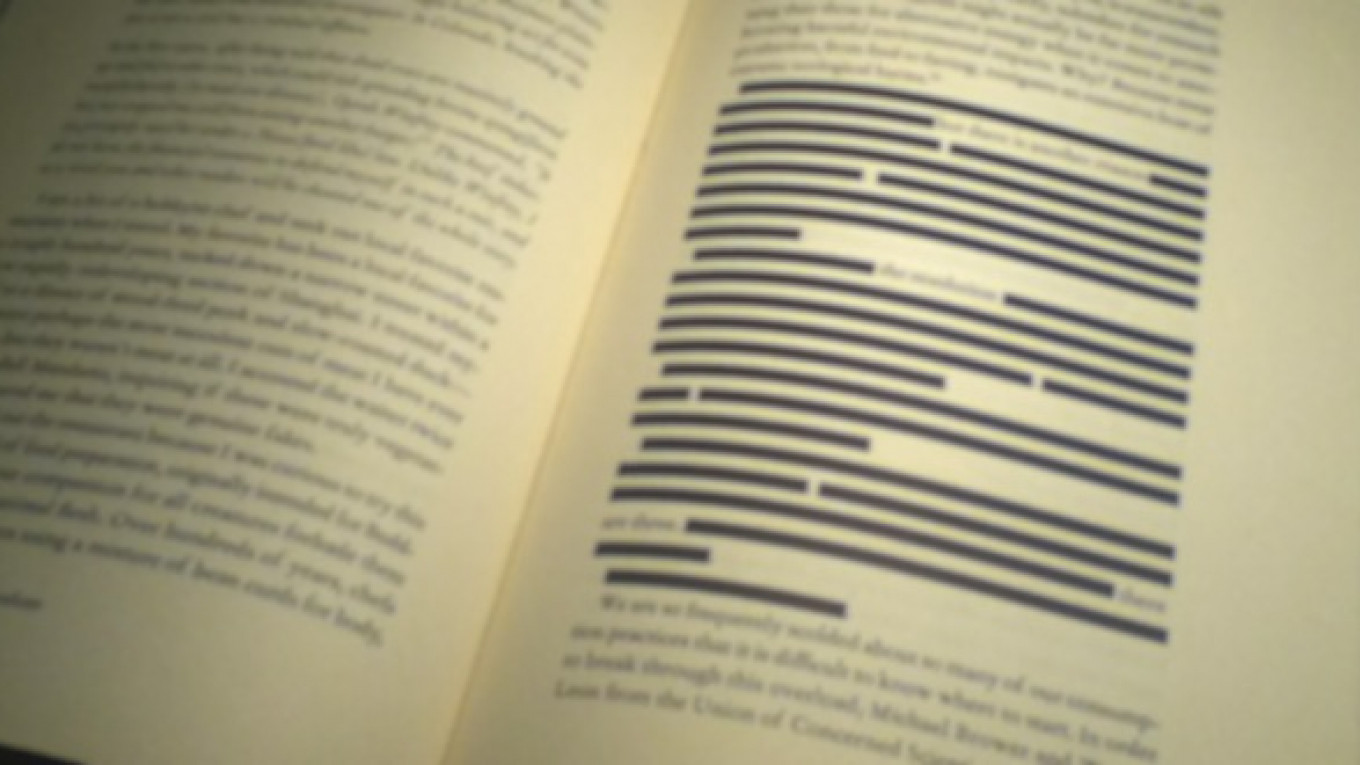A law banning swearing in film, theater and other forms of art took effect Tuesday, outlawing the profanity abundantly used in works by Russian literary giants like novelist Fyodor Dostoyevsky and poets such as Alexander Pushkin and Mikhail Lermontov.
The so-called profanity law, signed by President Vladimir Putin in May, lists the use of four particular swear words and their derivatives — a particularly vulgar and vivacious lexicon known as Russian "mat" — in public performances as punishable by fines of up to 2,500 rubles ($70) for individuals and up to 50,000 rubles for companies and organizations.
The 19th century Russian novelist Dostoyevsky, however, devoted an essay praising the all-encompassing expressive powers of one of the simple monosyllabic words now banned under the new law, arguing it could replace all others in Russian speech. And the novelist hardly suffered from a limited vocabulary.
"I suddenly realized that all thoughts, feelings, and even a whole chain of reasoning could be expressed by that one noun, which is moreover extremely short," Dostoyevsky wrote in the 1873 essay, published in his "Diary of a Writer" collection.
Other literary giants such as Pushkin and Lermontov also favored words from Russian "mat" to flavor some of their more flippant poems.
Some well-known examples include Pushkin's "Wagon of Life" or Lermontov's "Holiday in Peterhof," though Russian media were banned from using those words under an earlier, 2013 law.
The poems, and others like them, are already usually published in Russian with bashful ellipses in place of the original crude words.
A spokeswoman for the Culture Ministry, which oversees Russia's theaters and issues movie distribution licenses, said the measure still gave artistic directors the freedom to decide "whether to break the new law or not."
Writer Victor Yerofeyev wrote in 2003 that "unlike indecent terminology in most languages, mat is multileveled, multifunctional, and extensively articulated––more a philosophy than a language."
"Once only spoken on the street and in prisons, mat has made its way into opera, literature, the internet, pop songs," he wrote.
But that, of course, referred to a period of more than a decade ago. And the essay — in which Yerofeyev also included a list of the coarse words along with their history and origins — was published not in Russia, but in U.S. magazine The New Yorker.
See also:
A Message from The Moscow Times:
Dear readers,
We are facing unprecedented challenges. Russia's Prosecutor General's Office has designated The Moscow Times as an "undesirable" organization, criminalizing our work and putting our staff at risk of prosecution. This follows our earlier unjust labeling as a "foreign agent."
These actions are direct attempts to silence independent journalism in Russia. The authorities claim our work "discredits the decisions of the Russian leadership." We see things differently: we strive to provide accurate, unbiased reporting on Russia.
We, the journalists of The Moscow Times, refuse to be silenced. But to continue our work, we need your help.
Your support, no matter how small, makes a world of difference. If you can, please support us monthly starting from just $2. It's quick to set up, and every contribution makes a significant impact.
By supporting The Moscow Times, you're defending open, independent journalism in the face of repression. Thank you for standing with us.
Remind me later.






